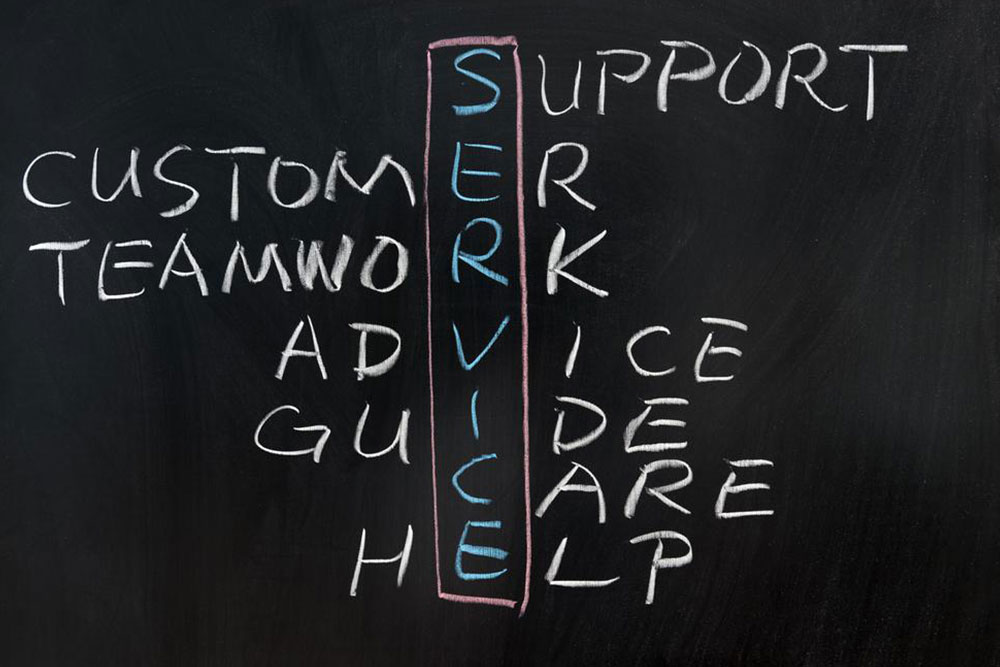Comprehensive Guide: 8 Expert Tips to Choose the Ideal Web Hosting Service
Choosing the right web hosting provider is essential for establishing a reliable online presence. This comprehensive guide offers expert tips on understanding your needs, assessing uptime, features, storage, pricing, and support to help you select the perfect host. Whether you're starting a personal blog or running a small business, these insights ensure your website performs optimally and scales smoothly with your growth. Make informed decisions to build a secure, scalable, and efficient website infrastructure that drives success and enhances user experience.

Comprehensive Guide: 8 Expert Tips to Choose the Ideal Web Hosting Service
Establishing a robust online presence begins with selecting the right web hosting provider. Whether you're launching an e-commerce platform, personal blog, or corporate website, your choice of hosting service plays a pivotal role in your digital success. A reliable, secure, and scalable hosting environment ensures your website runs smoothly, attracts visitors, and maintains high performance. For small businesses and entrepreneurs, the importance of choosing the correct web hosting cannot be overstated, as it directly impacts user experience, search engine rankings, and brand reputation.
With a multitude of hosting providers available today, making an informed decision can seem daunting. Factors such as server speed, uptime, customer support, security features, and pricing vary greatly across providers. To help you navigate this complex landscape, this detailed guide provides essential tips and considerations to identify and select the web hosting service that best suits your specific needs and long-term growth plans.
1. Clearly Define Your Hosting Requirements
The first step toward choosing the ideal web hosting provider is understanding what you need from your hosting service. Different websites have different requirements; a simple personal blog will need vastly different resources compared to a large e-commerce platform. Common hosting types include shared hosting, Virtual Private Servers (VPS), dedicated hosting, cloud hosting, colocation, and managed hosting services. To make an informed decision, you should ask yourself a series of questions: Do you need root access and full control? Are you comfortable managing server configurations, or would you prefer managed services? How much bandwidth and storage will your website require initially and as it scales? Understanding these factors helps narrow down your options effectively.
2. Prioritize Server Uptime and Reliability
One of the most critical indicators of a quality web hosting service is server uptime. Uptime refers to the amount of time your website remains accessible to visitors without interruptions. Aim for a provider that guarantees at least 99.95% uptime, as anything lower can lead to frequent downtime, which not only frustrates visitors but can also harm your search engine rankings. Consistent server reliability ensures that your website operates smoothly during peak traffic periods and across all time zones. Reputable hosting companies often publish transparency reports about their uptime records, so reviewing these metrics before making a decision is advisable.
3. Examine the Features and Tools Provided
The functionality offered by your web hosting provider influences how easily you can build, manage, and optimize your website. Essential features include control panels like cPanel or Plesk, integration with popular content management systems such as WordPress, e-commerce plugins, analytics tools, FTP access, and email hosting capabilities. Security features such as SSL certificates, firewall protections, malware scanning, and automatic backups are equally important. Depending on your technical expertise, you may need a host that offers a user-friendly interface, one-click installations, and developer tools. Thoroughly reviewing the feature list helps ensure your chosen host supports your technical and business objectives seamlessly.
4. Consider Storage Capacity and Scalability Options
Storage space determines how much data your website can hold, including images, videos, databases, and other media files. While many providers advertise unlimited storage, there are often hidden limitations or restrictions. It’s vital to select a hosting service that offers scalable storage options, allowing you to upgrade as your website grows. Adequate storage not only prevents performance issues but also enables the addition of new content without frequent migrations. When reviewing plans, consider your current needs and future growth projections to choose a host that provides sufficient and flexible storage services.
5. Support for Multiple Domains and Website Management
If you plan to run multiple websites under a single hosting account, verify that the host allows hosting and managing multiple domains comfortably. Budget hosting plans often support at least 25 addon domains, giving you the flexibility to expand your business or portfolio. Whether you’re managing several niche blogs or multiple business sites, good domain management features—including domain forwarding, DNS management, and one-click domain addition—are essential. This capability allows efficient management and reduces the need for multiple hosting accounts, thus saving costs and streamlining operations.
6. Transparent Pricing, Renewal Rates, and Cost-Effectiveness
Pricing is a significant factor when selecting a web hosting provider. Many companies offer attractive introductory rates to lure new customers; however, renewal rates can be substantially higher. Always compare the initial signup fee with the renewal cost to understand the long-term expense. Look for providers that offer clear, transparent pricing without hidden charges. Additionally, assess the value provided at each price point—features, support quality, security, and performance—and choose plans that strike a balance between affordability and features. Remember, the cheapest option may not always be the best if it compromises reliability or support quality.
7. Evaluate Refund Policies and Free Trial Opportunities
Before committing to a hosting provider, review their refund and cancellation policies. Many reputable companies offer a money-back guarantee within a specific trial period, allowing you to test their services risk-free. Well-defined refund policies help protect your investment if the service doesn’t meet your expectations or technical needs. Also, free trial periods provide an opportunity to test server speed, customer support responsiveness, ease of use, and overall platform stability before making a long-term commitment. Always choose providers that are transparent about their policies and willing to support your testing phase.
8. Customer Support and Technical Assistance
Reliable customer support is crucial for resolving technical issues swiftly and minimizing website downtime. Your web hosting provider should offer 24/7 support via multiple channels, including live chat, email, and phone. The quality of support can significantly impact your website's uptime and your peace of mind. Before subscribing, research customer reviews about their support responsiveness and expertise. A provider with a dedicated support team ensures prompt assistance during emergencies, technical glitches, or routine inquiries. Good support also includes comprehensive knowledge bases, tutorials, and FAQs to empower you to troubleshoot common issues independently.
In conclusion, making an informed decision when selecting a web hosting provider involves examining multiple factors—from technical features to support and pricing. By thoroughly evaluating your needs, reviewing the provider’s reliability, and understanding their services, you can choose a hosting partner that aligns with your goals. Proper hosting lays the foundation for a successful online presence, and investing time in research ensures you make the best choice for your digital growth and long-term stability.





